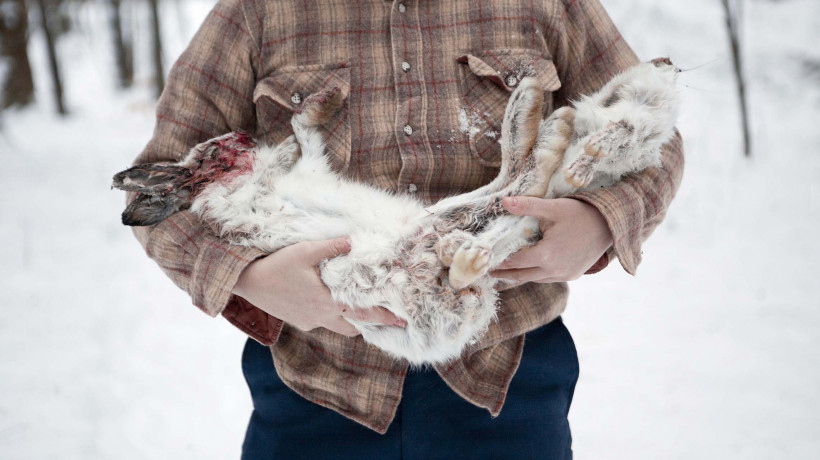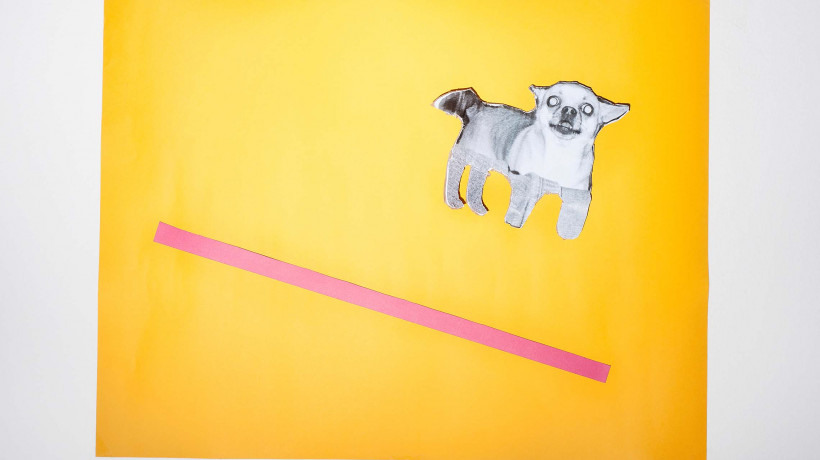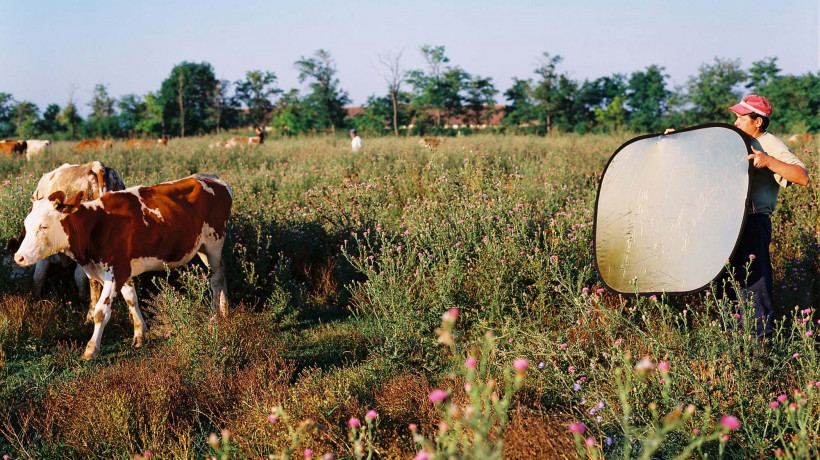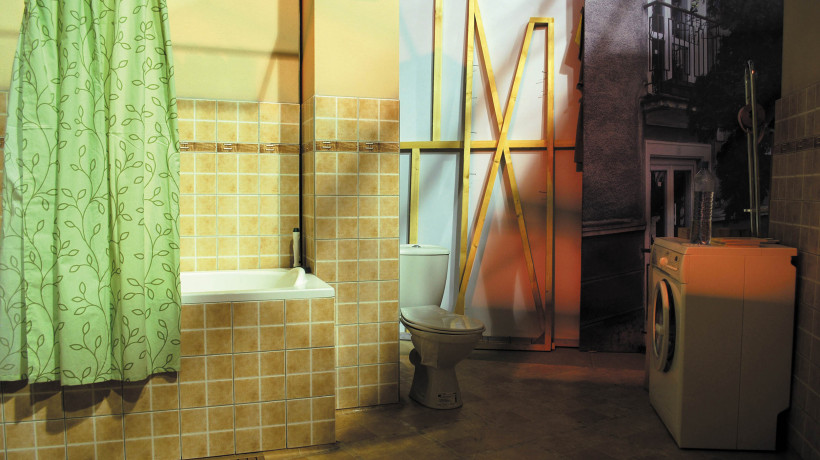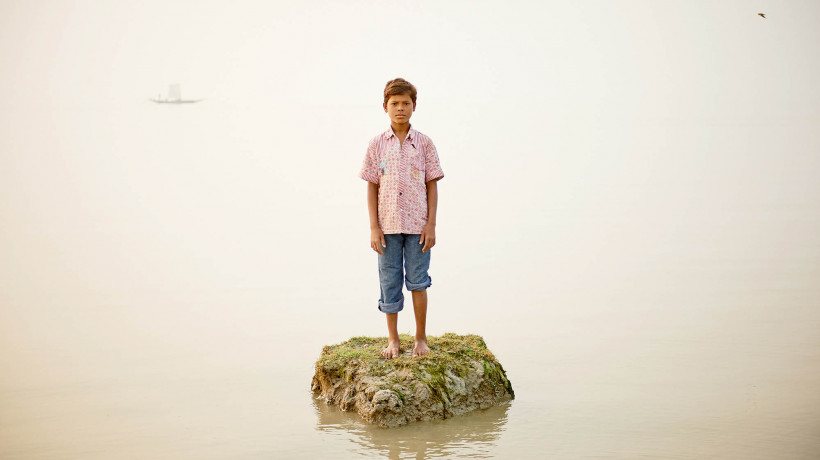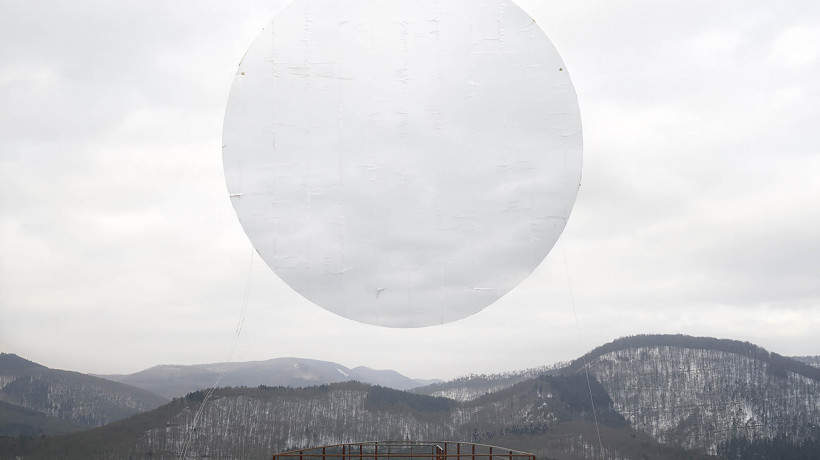Urška Savič
Urška Savič (1992) is a critic and journalist active in the fields of visual arts and cultural politics, working also as a photographer and radio artist. She finished her BA in photography at FAMU (Prague, 2014) on the topic of collage and photo-montage and has obtained her MA at the Department of Sculpture at ALUO (Ljubljana), focusing on archiving practices in contemporary art. She was a residency artist at the Centre for Digital Arts in Holon, Israel (2015), and did an internship at the Peggy Guggenheim Museum in Venice, Italy (2015). Since 2017, she is an active participant of the cultural redaction at Radio Študent, one of Europe’s oldest and strongest non-commercial, alternative radio stations. There, she has been a curator of an open radio (art-theory) research platform R A D A R since 2019.
Clara Benson’s poetic work is a tribute to her family as well as the tradition and mythology of the place she comes from.
Info
Bio
PDF
Close
Clara Benson’s poetic work is a tribute to her family as well as the tradition and mythology of the place she comes from.
Urška Savič (1992) is a critic and journalist active in the fields of visual arts and cultural politics, working also as a photographer and radio artist. She finished her BA in photography at FAMU (Prague, 2014) on the topic of collage and photo-montage and has obtained her MA at the Department of Sculpture at ALUO (Ljubljana), focusing on archiving practices in contemporary art. She was a residency artist at the Centre for Digital Arts in Holon, Israel (2015), and did an internship at the Peggy Guggenheim Museum in Venice, Italy (2015). Since 2017, she is an active participant of the cultural redaction at Radio Študent, one of Europe’s oldest and strongest non-commercial, alternative radio stations. There, she has been a curator of an open radio (art-theory) research platform R A D A R since 2019.
Reviews in PDF format are available only to members subscribed to all PDFs ( Membrana PDF
).
DOWNLOAD PDF:
The works by Mijatović are strongly marked by this action of cutting that transforms the meaning of the image, yet proves to be a meaningless manipulation by the time his works are complete.
Info
Bio
PDF
Close
The works by Mijatović are strongly marked by this action of cutting that transforms the meaning of the image, yet proves to be a meaningless manipulation by the time his works are complete.
Urška Savič (1992) is a critic and journalist active in the fields of visual arts and cultural politics, working also as a photographer and radio artist. She finished her BA in photography at FAMU (Prague, 2014) on the topic of collage and photo-montage and has obtained her MA at the Department of Sculpture at ALUO (Ljubljana), focusing on archiving practices in contemporary art. She was a residency artist at the Centre for Digital Arts in Holon, Israel (2015), and did an internship at the Peggy Guggenheim Museum in Venice, Italy (2015). Since 2017, she is an active participant of the cultural redaction at Radio Študent, one of Europe’s oldest and strongest non-commercial, alternative radio stations. There, she has been a curator of an open radio (art-theory) research platform R A D A R since 2019.
Reviews in PDF format are available only to members subscribed to all PDFs ( Membrana PDF
).
DOWNLOAD PDF:
In practice Ajduković experiments as a visual anthropologist who applies fast production and snapshot aesthetics to research the phenomena of fashion, pop culture and lifestyle in urban centers where the latter appear as symptoms of modern life.
Info
Bio
PDF
Close
In practice Ajduković experiments as a visual anthropologist who applies fast production and snapshot aesthetics to research the phenomena of fashion, pop culture and lifestyle in urban centers where the latter appear as symptoms of modern life.
Urška Savič (1992) is a critic and journalist active in the fields of visual arts and cultural politics, working also as a photographer and radio artist. She finished her BA in photography at FAMU (Prague, 2014) on the topic of collage and photo-montage and has obtained her MA at the Department of Sculpture at ALUO (Ljubljana), focusing on archiving practices in contemporary art. She was a residency artist at the Centre for Digital Arts in Holon, Israel (2015), and did an internship at the Peggy Guggenheim Museum in Venice, Italy (2015). Since 2017, she is an active participant of the cultural redaction at Radio Študent, one of Europe’s oldest and strongest non-commercial, alternative radio stations. There, she has been a curator of an open radio (art-theory) research platform R A D A R since 2019.
Reviews in PDF format are available only to members subscribed to all PDFs ( Membrana PDF
).
DOWNLOAD PDF:
The focus of the viewer shifts from the nakedness of the documentation to his or her own relationship with the space.
Info
Bio
PDF
Close
The focus of the viewer shifts from the nakedness of the documentation to his or her own relationship with the space.
Urška Savič (1992) is a critic and journalist active in the fields of visual arts and cultural politics, working also as a photographer and radio artist. She finished her BA in photography at FAMU (Prague, 2014) on the topic of collage and photo-montage and has obtained her MA at the Department of Sculpture at ALUO (Ljubljana), focusing on archiving practices in contemporary art. She was a residency artist at the Centre for Digital Arts in Holon, Israel (2015), and did an internship at the Peggy Guggenheim Museum in Venice, Italy (2015). Since 2017, she is an active participant of the cultural redaction at Radio Študent, one of Europe’s oldest and strongest non-commercial, alternative radio stations. There, she has been a curator of an open radio (art-theory) research platform R A D A R since 2019.
Reviews in PDF format are available only to members subscribed to all PDFs ( Membrana PDF
).
DOWNLOAD PDF:
Lee addresses the archiving of history in museums as a practice that establishes itself as more important than the actual preservation of certain areas, people and ways of life in the present moment.
Info
Bio
PDF
Close
Lee addresses the archiving of history in museums as a practice that establishes itself as more important than the actual preservation of certain areas, people and ways of life in the present moment.
Urška Savič (1992) is a critic and journalist active in the fields of visual arts and cultural politics, working also as a photographer and radio artist. She finished her BA in photography at FAMU (Prague, 2014) on the topic of collage and photo-montage and has obtained her MA at the Department of Sculpture at ALUO (Ljubljana), focusing on archiving practices in contemporary art. She was a residency artist at the Centre for Digital Arts in Holon, Israel (2015), and did an internship at the Peggy Guggenheim Museum in Venice, Italy (2015). Since 2017, she is an active participant of the cultural redaction at Radio Študent, one of Europe’s oldest and strongest non-commercial, alternative radio stations. There, she has been a curator of an open radio (art-theory) research platform R A D A R since 2019.
Reviews in PDF format are available only to members subscribed to all PDFs ( Membrana PDF
).
DOWNLOAD PDF:
Sometimes “odd-ones-out” are places inside the series – photos that are just photos and do not document any installations and only depict the existing reality.
Info
Bio
PDF
Close
Sometimes “odd-ones-out” are places inside the series – photos that are just photos and do not document any installations and only depict the existing reality.
Urška Savič (1992) is a critic and journalist active in the fields of visual arts and cultural politics, working also as a photographer and radio artist. She finished her BA in photography at FAMU (Prague, 2014) on the topic of collage and photo-montage and has obtained her MA at the Department of Sculpture at ALUO (Ljubljana), focusing on archiving practices in contemporary art. She was a residency artist at the Centre for Digital Arts in Holon, Israel (2015), and did an internship at the Peggy Guggenheim Museum in Venice, Italy (2015). Since 2017, she is an active participant of the cultural redaction at Radio Študent, one of Europe’s oldest and strongest non-commercial, alternative radio stations. There, she has been a curator of an open radio (art-theory) research platform R A D A R since 2019.
Reviews in PDF format are available only to members subscribed to all PDFs ( Membrana PDF
).
DOWNLOAD PDF:
